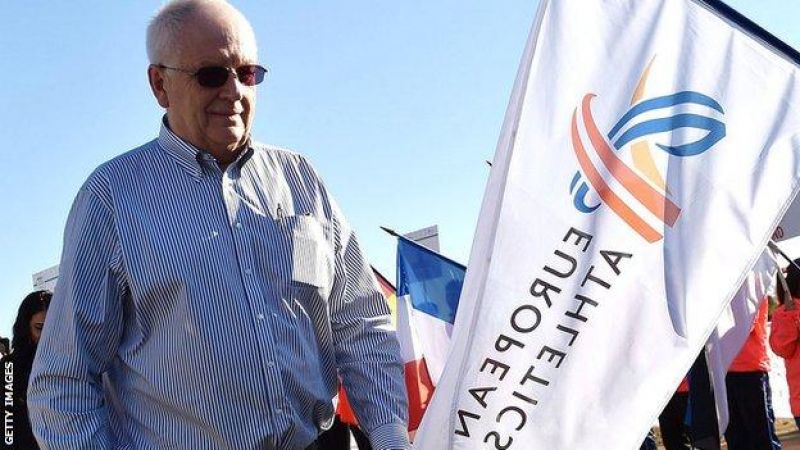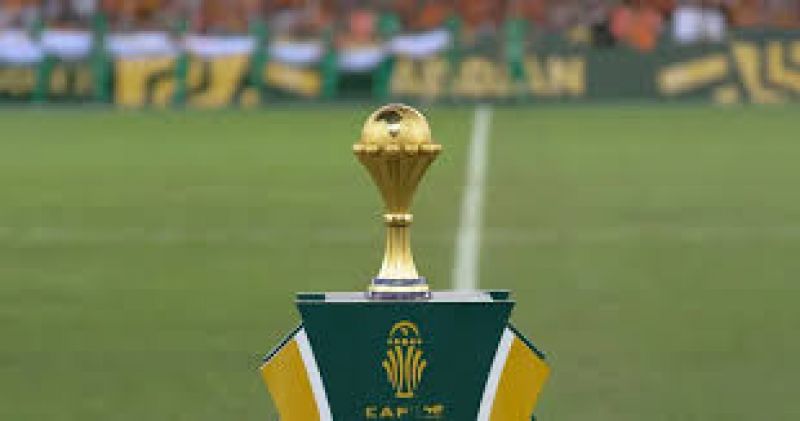By Daily Sports on May 2, 2017

Most of athletics’ world records could be rewritten under a “revolutionary” new proposal from European Athletics.
The credibility of records was examined following the sport’s doping scandal.
Britain’s Paula Radcliffe, who faces losing her 2003 marathon world record under the new criteria, called the proposals “cowardly”.
“I am hurt and do feel this damages my reputation and dignity,” she said, adding that the governing bodies had “again failed clean athletes.”
Svein Arne Hansen, the European Athletics president, said world records “are meaningless if people don’t really believe them”.
However, Radcliffe said the changes were “heavy handed” and “confusing to the public”.
European Athletics set up a taskforce to look into the credibility of world records in January. Its ruling council has now ratified the proposals put forward by the taskforce, and it wants the sport's world governing body, the IAAF, to adopt the changes it sets out.
How will world records be recognised?
If the proposals are accepted by the IAAF, a world record would only be recognised if:
It was achieved at a competition on a list of approved international events where the highest standards of officiating and technical equipment can be guaranteed;
The athlete had been subject to an agreed number of doping control tests in the months leading up to it;
The doping control sample taken after the record was stored and available for re-testing for 10 years.
The council also recommended that a performance should be wiped from record books if the athlete had committed a “doping or integrity violation, even if it does not directly impact the record performance”.
Why are the changes needed?
The proposals are a response to last year’s McLaren report, which uncovered widespread doping in sport – and athletics in particular. Russian athletes are currently banned from international competition unless they can satisfy strict criteria to show they are clean.
More than 100 Olympic athletes who competed at the 2008 and 2012 Games have been sanctioned for doping after the International Olympic Committee embarked on a programme of retesting old samples.
“There are records in which people in the sport, the media and the public do not have complete confidence,” added taskforce chair Pierce O’Callaghan.
What has the reaction been so far?
The IAAF has stored blood and urine samples only since 2005 and current records that do not meet the new criteria would remain on an “all-time list”, but not be officially recognised as records.
This would include Jonathan Edwards’ triple jump record of 18.29m – set in 1995 – and Colin Jackson’s 1994 indoor 60m hurdles world record of 6.30secs, as well as Radcliffe’s marathon mark of 2 hours 17 minutes and 18 seconds, set in 2003.
IAAF president Sebastian Coe said the changes were “a step in the right direction”.
“There will be athletes, current record holders, who will feel that the history we are recalibrating will take something away from them, but if organised and structured properly we have a good chance of winning back credibility in this area,” he said.
European Athletics president Hansen said he would encourage the IAAF to adopt the proposal at its August council meeting.
“What we are proposing is revolutionary and not just because most world and European records will have to be replaced,” Hansen added.
“We want to raise the standards for recognition to a point where everyone can be confident that everything is fair and above board.” (BBC)
•Photo shows European Athletics President Svein Arne Hansen.
Source Daily Sports
Posted May 2, 2017
You may also like...

Gerrard Credits Villa Players For Team’s Rise

Why I snubbed Man City, Joined Liverpool —...

Ibrahimovic Back In Sweden Squad

Atletico’s Gimenez Tests Positive For Covid-19

World Cup-bound Flamingos begin training camp in Abuja...

Ahead 2016 CAF Club Competitions: What hope for...

_9.jpg) NPFL: Rangers win big as Nasarawa shock Abia
NPFL: Rangers win big as Nasarawa shock Abia Nigeria know World Table Tennis Champs foes today
Nigeria know World Table Tennis Champs foes today Bayelsa athletics boss Oredipe maps out dev plans
Bayelsa athletics boss Oredipe maps out dev plans Falcons stars dominate IFFHS Africa XI
Falcons stars dominate IFFHS Africa XI Eguavoen backs NPFL talents for Nigeria squad despite CHAN failure
Eguavoen backs NPFL talents for Nigeria squad despite CHAN failure He’s very strong, Simeone returns Osimhen praise
He’s very strong, Simeone returns Osimhen praise Joshua boxing return still uncertain
Joshua boxing return still uncertain NBA star Bane eyes Nigeria switch
NBA star Bane eyes Nigeria switch Palmer 'very, very happy' at Chelsea, says Rosenior
Palmer 'very, very happy' at Chelsea, says Rosenior_2.jpeg) AFCON 2025: VAR recording discloses what referee said before Morocco's penalty miss against Senegal
AFCON 2025: VAR recording discloses what referee said before Morocco's penalty miss against Senegal AFCON 2025 highlights: World-class stadiums, VAR drama, record attendance
AFCON 2025 highlights: World-class stadiums, VAR drama, record attendance Oliseh slams Osimhen for costing Eagles’ AFCON trophy
Oliseh slams Osimhen for costing Eagles’ AFCON trophy Rangers International going, going . . . (63,494 views)
Rangers International going, going . . . (63,494 views) Amaju Pinnick: A cat with nine lives (54,788 views)
Amaju Pinnick: A cat with nine lives (54,788 views) Second Term: Amaju Pinnick, Other NFF Heavyweights Home to Roost •How Pinnick Broke the Jinx (52,684 views)
Second Term: Amaju Pinnick, Other NFF Heavyweights Home to Roost •How Pinnick Broke the Jinx (52,684 views) Current issues in Nigerian sports: Matters arising (52,344 views)
Current issues in Nigerian sports: Matters arising (52,344 views) Sports Development: Zenith Bank on the zenith (52,277 views)
Sports Development: Zenith Bank on the zenith (52,277 views) Missing $150,000 IAAF Grant: Solomon Dalung’s Hide and Seek game (52,187 views)
Missing $150,000 IAAF Grant: Solomon Dalung’s Hide and Seek game (52,187 views) Gov. Abdullahi Ganduje’s solid footprints, commitment to sports development in Kano State (52,054 views)
Gov. Abdullahi Ganduje’s solid footprints, commitment to sports development in Kano State (52,054 views) NFF Presidency: Pinnick, Maigari, Ogunjobi, Okoye in Battle for Supremacy (51,608 views)
NFF Presidency: Pinnick, Maigari, Ogunjobi, Okoye in Battle for Supremacy (51,608 views) Olopade, BET9A wave of revolution in NNL (50,787 views)
Olopade, BET9A wave of revolution in NNL (50,787 views) Commonwealth Games 2018: Shame of Muhammadu Buhari, Solomon Dalung (49,315 views)
Commonwealth Games 2018: Shame of Muhammadu Buhari, Solomon Dalung (49,315 views) Ibrahimovic’s Man U exit: Whose decision is it? And in whose interest? (47,704 views)
Ibrahimovic’s Man U exit: Whose decision is it? And in whose interest? (47,704 views) John Mikel Obi: Segun Odegbami’s Outrageous Call! (47,173 views)
John Mikel Obi: Segun Odegbami’s Outrageous Call! (47,173 views)